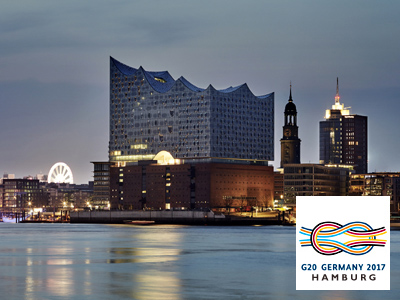 By: Frank Cadenhead
By: Frank Cadenhead
Today, Sunday May 14, 2017, Emmanuel Macron, the newly-elected President of France is officially installed with much ceremony including a parade down the Champs-Elysées. In an interview on a French classical music website in April, he was asked about his favorite composer. This is his reply:
“I have a great admiration for Rossini. For me, he occupies an essential place in the history of music. His freedom, his life and his genius have always impressed me. He took opera out of its yoke by offering a new freedom to the voice: he completely reinvented lyrical singing. From Barbiere to Il viaggio a Reims through Cenerentola, he created an irresistible style – but I am also sensitive to his serious operas, such as Moses or Maometto II, which are given so rarely. In a very different way, I give a special prize to Bach. It has been a big deal for me. His work for keyboard (organ, harpsichord) and for cello is of a precision which does not prevent the spiritual elevation, but so to speak favors it. I hear less a mathematical coldness than a musical discourse carrying all the possible emotions. Bach is a voyager between several worlds, indefinable and brilliant.”
In his youth, he studied for some 10 years, presumably on-and-off, at the local conservatory in the city of Amiens and won 3rd place in a local competition. He still plays Schumann and Lizst, among others, and noted that the “incandescence of Les Années de Pèlerinage remains intact despite the passing of years.”
Macron, regarding public policy in the arts, understands that cultural appreciation starts in schools at a young age and proposes that every child have exposure to a broad range of cultural activities, with experiences in active creation involved. He is interested in reaching out to the publics défavorisés and advocates performances in difficult suburban areas. He has expressed the desire to increase the visibility of French regional opera, orchestras and theater by increasing the diffusion by television and the internet. Also, in addition to opening libraries evenings and weekends, he proposes a “Pass Culture” – an idea which originated in Italy – which gives every 18-year-old a card allowing them to spend 500 euros on cultural activities. As the government forms and the reality of the cultural program is more clear, we will continue to report.
Those looking from afar at the new music-loving French president should not necessarily assume that the country is particularly oriented toward classical music. Since the founding of the Fifth Republic and Charles de Gaulle, the France Musique site notes, none of the presidents had a particular interest in classical music. Valéry Giscard d’Estaing, however, did play the accordion rather well.
Macron clearly understands the importance of culture in the life of France. “Culture is, at the same time, the past, the present and the future of our country…. The creativity of today is the patrimony of tomorrow.” The interview can be seen (in French) at:
http://www.classiquenews.com/la-culture-selon-emmanuel-macron-grand-entretien-pour-classiquenews/

